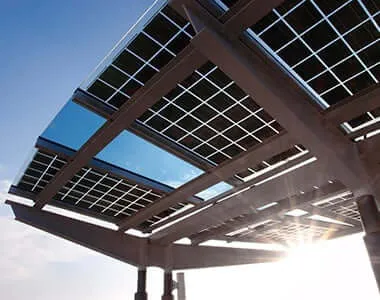three phase hybrid inverter
Understanding Three-Phase Hybrid Inverters A Comprehensive Overview
In recent years, the demand for sustainable energy solutions has surged, leading to the development of advanced technologies like three-phase hybrid inverters. These devices play a crucial role in the integration of renewable energy sources into the grid, enhancing energy efficiency and reliability. This article aims to provide a comprehensive understanding of three-phase hybrid inverters, their functionalities, advantages, and applications.
What is a Three-Phase Hybrid Inverter?
A three-phase hybrid inverter is a sophisticated device that converts direct current (DC) from renewable energy sources, such as solar panels, into alternating current (AC) for household or commercial use. The term hybrid refers to its ability to utilize multiple energy sources, including grid power, solar energy, and battery storage. This versatility makes hybrid inverters an essential component of modern energy systems, especially for users looking to maximize efficiency and minimize reliance on the grid.
Key Features and Functionality
Three-phase hybrid inverters operate on the principle of converting DC to three-phase AC power, which is more efficient for large-scale applications. They come with several key features
1. Multiple Input Sources Hybrid inverters can connect to various energy sources. These typically include solar panels, wind turbines, and energy storage systems like batteries. This capability allows users to harness a diverse range of renewable energy sources.
2. Grid Interaction Unlike traditional inverters that solely rely on solar power, hybrid inverters can interact with the grid. This means they can either draw power from the grid during low-generation periods or feed excess energy back into the grid when production exceeds consumption.
3. Energy Management System Many three-phase hybrid inverters come equipped with advanced energy management systems that monitor energy production, consumption, and battery storage levels. These systems optimize energy flow, ensuring efficient use of available resources.
4. Scalability Hybrid inverters can be scaled according to energy demands. Whether for residential, commercial, or industrial applications, these inverters can accommodate varying load sizes by connecting multiple units in parallel.
three phase hybrid inverter

Advantages of Three-Phase Hybrid Inverters
1. Increased Energy Efficiency By utilizing both renewable sources and battery storage, hybrid inverters maximize energy usage, reducing reliance on the grid and lowering electricity costs.
2. Enhanced Reliability With the ability to switch between power sources, these inverters provide a stable energy supply, even during grid outages. This feature is particularly beneficial for critical applications in healthcare, data centers, and emergency services.
3. Reduced Carbon Footprint By facilitating the use of renewable energy, three-phase hybrid inverters contribute to lower greenhouse gas emissions, supporting global efforts towards a sustainable energy future.
4. Cost Savings Although the initial investment might be higher compared to traditional inverters, the long-term savings on electricity bills and potential government incentives make them an economically viable choice.
Applications of Three-Phase Hybrid Inverters
Three-phase hybrid inverters are versatile and can be used in a variety of applications, including
- Residential solar energy systems Homeowners can integrate solar panels with battery storage to optimize their energy usage. - Commercial facilities Businesses can reduce operational costs and improve energy resilience by utilizing hybrid inverters. - Microgrids In remote or off-grid locations, hybrid inverters can create self-sustaining microgrid systems that enhance energy independence.
Conclusion
Three-phase hybrid inverters represent a significant advancement in energy technology, offering a flexible and efficient way to integrate renewable energy sources into existing power systems. By leveraging multiple energy inputs and optimizing energy management, these devices not only support individual energy needs but also contribute to broader environmental goals. As the world continues to shift towards sustainable energy solutions, three-phase hybrid inverters will play an increasingly vital role in shaping the energy landscape of the future. Whether for residential, commercial, or industrial use, investing in this technology is a step towards a more sustainable and reliable energy future.
-
String Solar Inverter: The High-Efficiency Solution for Smart Solar EnergyNewsJul.14,2025
-
Revolutionizing Rooftop Energy with the Power of the Micro Solar InverterNewsJul.14,2025
-
Power Independence with Smart Off Grid Solar Inverter SolutionsNewsJul.14,2025
-
On Grid Solar Inverter: Powering the Future with Smart Grid IntegrationNewsJul.14,2025
-
Monocrystalline Solar Panels: High-Efficiency Power for the Future of Clean EnergyNewsJul.14,2025
-
Bifacial Solar Panel: A Smarter Investment for Next-Generation Energy SystemsNewsJul.14,2025







